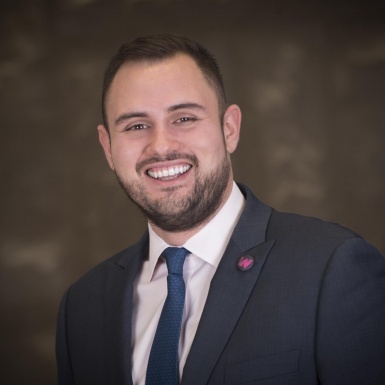Alzheimer’s Is the New HIV
Sign up and receive information on the latest news and updates.
Editor's note: this piece orginally appeared on David's personal blog
It is not every day that I walk out of a medical school lecture truly inspired. The topic was on HIV and how far we have come in the treatment and management of the disease. We’ve all heard how “HIV is no longer a death sentence,” but actually going through the details on how much success we’ve had in treating HIV is amazing.
I remember learning about HIV in school when I was in 5th grade. I recall seeing pictures of the progression of someone who had HIV and didn’t know it. The person would get some flu-like symptoms, seem relatively healthy for a while, then one day get AIDS. Some antiretroviral therapy was around, but these drugs had several toxic side effects. People with HIV had to take multiple types of drugs at certain times throughout the day. If they didn’t take the medication correctly, then the treatment would not work. Today, the treatment regimen can be as little as one pill a day.
There have been changes in the screening protocols for HIV. I learned today that the recommendation from the CDC is to screen individuals from the ages of 13-64 without regard for perceived risk. Why did they change this from the prior method of screening only those who had perceived risk? About 1/4 of those infected with HIV in the U.S. are unaware they have the disease. According to a statistic from the CDC presented in class, “39% of people who tested positive for HIV in 2004 received a diagnosis of AIDS within one year.” With earlier detection, patients can start treatment earlier and reduce the likelihood of transmitting the disease unknowingly to other partners.
What does this have to do with World Alzheimer’s Month? I have read articles and seen in the news how the Alzheimer’s advocates of the world could take a page from the successes of the HIV advocacy movement. They are exactly right. Maria Shriver is running a special news segment on NBC called “The Age of Alzheimer’s.” We are in the age of Alzheimer’s. 5.4 million Americans have Alzheimer’s, and that number is projected to triple by 2050. There is no way to prevent, effectively treat, or cure Alzheimer’s.
We can start changing this just by raising awareness. You can walk into a room and take a poll on who has had a family member affected by Alzheimer’s, and a majority of the room will raise their hand. People are aware that Alzheimer’s exists, but may not know that Alzheimer’s is NOT a part of normal aging. People might not know that something called the Alzheimer’s Association exists to help and support them. They may not know what a Walk To End Alzheimer’s is, or that there is currently a National Alzheimer’s Plan Act. It’s time to let people know so we can have these conversations, sign up for fundraisers, and talk to our elected officials.
Early detection may be the key to figuring out a way to stop the disease. It’s important for health care providers to look for the signs of the early stages of Alzheimer’s, which can be difficult to do in a short visit. Perhaps in the future there will be a new protocol to screen people at a much younger age than the current guidelines. Some research studies are looking at entire families with a history of Alzheimer’s, and hopefully it will lead to clues on how Alzheimer’s develops.
It is now known that Alzheimer’s can develop well before the onset of the earliest symptoms. The Alzheimer’s Prevention Registry, set up by the Banner Alzheimer’s Institute, allows anyone over the age of 18 to sign up and learn about potential trials they can participate in. Those who sign up are under no obligation to participate in research, but have the option of participating in trials they may qualify for. Here is a link that goes into more detail about the Alzheimer’s Prevention Registry: http://www.nia.nih.gov/alzheimers/features/new-alzheimers-prevention-registry-recruiting-250000-volunteers
Although there is still no cure for HIV, do you think the doctors who treated the earliest cases of HIV could have imagined that taking one pill could turn a disease from a death sentence to a manageable, chronic disease? I hope to give a lecture in 20 years to a medical school class stating, “There was a time when there was no way to prevent, slow down, or cure Alzheimer’s. This is no longer the case today.”
